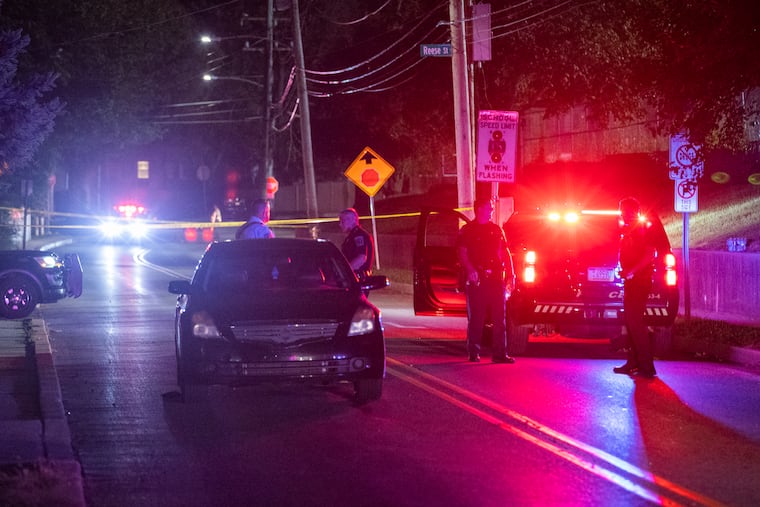The Sharon Hill officers charged with killing Fanta Bility may have acted against department policy
The policy prohibits firing at a moving vehicle as the officers did on the night of Fanta's death.

The three Sharon Hill police officers who fired at a car at a high school football game in August, killing 8-year-old Fanta Bility, apparently did so in violation of the department’s use-of-force policy, according to documents reviewed by The Inquirer.
That policy, adopted in January 2016, bars officers from discharging their weapons “when it appears likely that an innocent person may be injured” and also prohibits them from firing at moving vehicles except in self-defense or in defense of another.
Such prohibitions are common among police departments — Philadelphia’s policy is almost identical — and policing experts say they afford important protections to bystanders and others during chaotic situations, such as shootings.
Officers Devon Smith, Sean Dolan, and Brian Devaney were charged Tuesday with manslaughter, involuntary manslaughter, and 10 counts of reckless endangerment for shooting at a car after hearing gunfire as a crowd of people left the game at Academy Park High School. The officers’ gunfire killed Fanta, who died in her mother’s arms at the scene, and injured three others, including her older sister Mamasu.
The charges came after a three-month investigation by a grand jury. Attorneys for the officers, as well as representatives from the Fraternal Order of Police, have said the officers did nothing wrong and have vowed to defend them against a prosecution they say unfairly targets them for doing their jobs.
Sharon Hill’s Borough Council is scheduled to consider whether to fire the three officers at a meeting Thursday night.
Devaney, a 16-year member of the force, told a colleague at the scene that he believed the occupants of the car had been firing at him and his fellow officers who were standing nearby, monitoring the crowd as it left the stadium, according to the grand jury.
“They were shooting at us. ... I heard the shots coming past us and, you know, the next thing I know this car pulls up,” Devaney told Sharon Hill Detective Vincent Port on the night of the shooting, the grand jury said.
But the car, a Chevrolet Impala driven by Academy Park graduate Assiyah Easley, was not the source of the shooting, prosecutors said. Two teens about 140 feet away from the officers had exchanged gunfire after an argument at the game, hitting a 13-year-old bystander and causing the crowd leaving the game to scatter, according to the grand jury.
Those teens, Hasein Strand, 18, and Angelo “AJ” Ford, 16, were initially charged with first-degree murder in Fanta’s death but have had those charges withdrawn. Strand pleaded guilty Tuesday to aggravated assault and gun offenses for the shooting, and Ford’s case on those charges was pending.
When bullets rang out, some people in the crowd ran into the street, blocking the path of the Impala, which stopped abruptly in front of the officers, the grand jury said. The officers mistakenly believed the car was involved in the shooting, the panel said, and fired 25 shots at the vehicle as it resumed moving, injuring Easley and Yasmin Mobley, who was sitting in the passenger seat.
Some of the bullets flew past the vehicle and into the crowd, striking Fanta and three others, and nearly hitting other officers. Sharon Hill Police Officers Vincent Procopio and John Scanlan, who were standing nearby, told detectives they heard the bullets “whizzing” or “whooshing” past them, according to the grand jury presentment.
Experts in police use of force say officers are taught to consider their surroundings when making a decision to fire and to avoid firing at a moving vehicle or into a crowd.
Seth Stoughton, a former police officer and criminal-justice scholar at the University of South Carolina, said officers should always first assess their surroundings before shooting back, especially in a crowded area such as the Academy Park football stadium.
“If someone is shooting at officers, they are presenting a threat of death or bodily harm, but if that person is standing in front of a crowd, that officer should not shoot back,” Stoughton said. “Even though the force is proportional, it’s not appropriate, given the higher chance that someone could be shot by an officer’s bullet.”